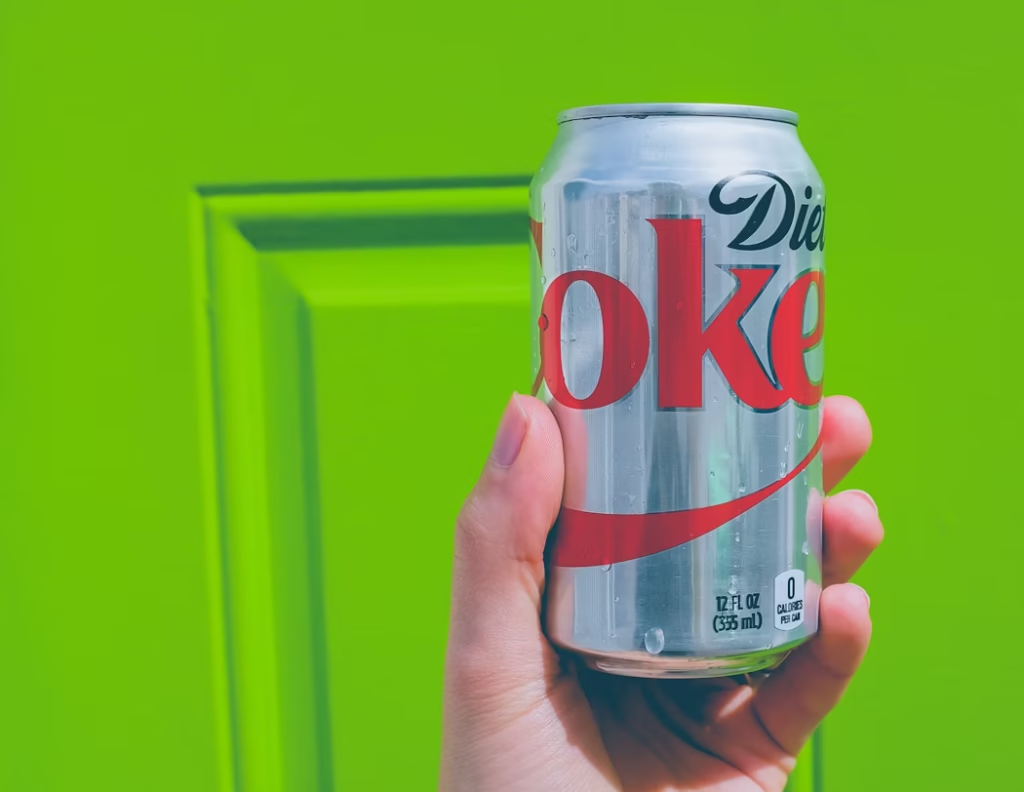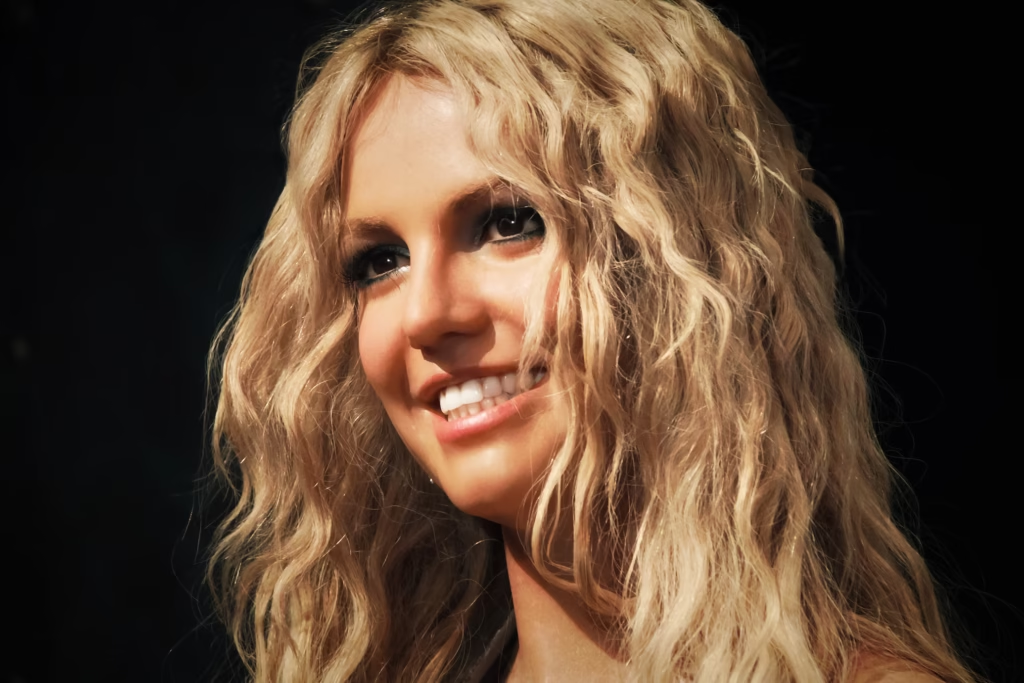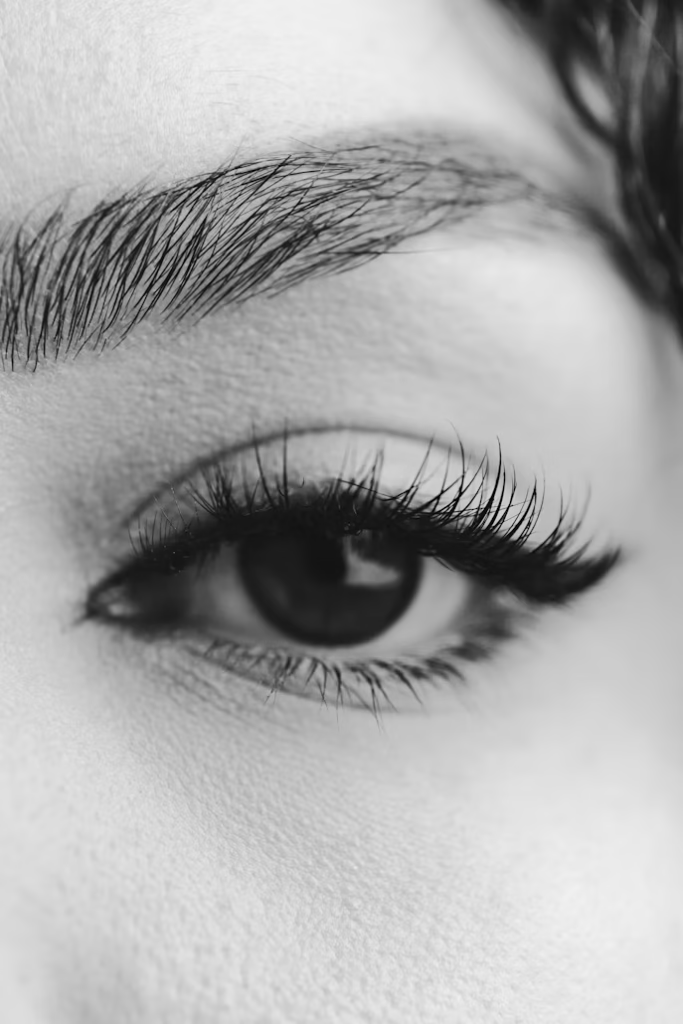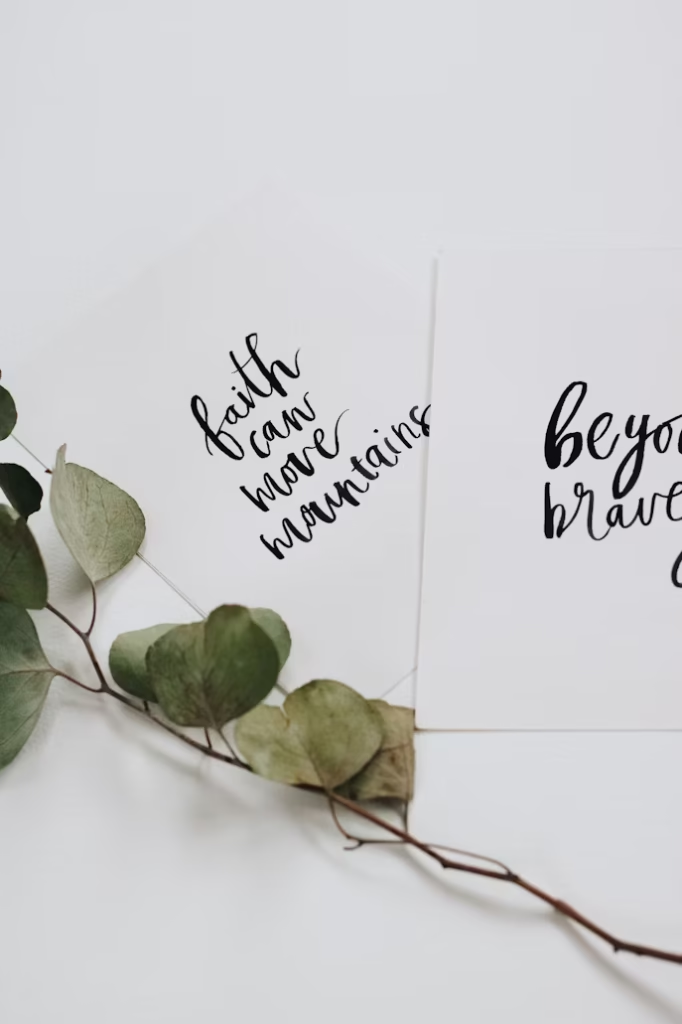
James B Partridge Brings ‘The Big Christmas Assembly’ to Liverpool — and It’s a Festive Throwback You Won’t Want to Miss
M&S Bank Arena Auditorium | 23 November 2025 If you ever belted out “Shine Jesus Shine” with more passion than a West
Lexi Pelle’s debut collection Let Go With The Lights On is not a nostalgia project. It’s a poetic excavation of girlhood, equal parts glamour, junk, shame, and euphoria. She writes about Diet Coke and expired mascara with the kind of obsessive precision normally reserved for holy objects. Her poems are messy, gorgeous, and defiantly not designed to be “relatable.” Instead, they’re portals. What you find on the other side depends on how closely you’re willing to look.
I spoke with Lexi about writing the maternal without flattening it, humour as ritual, beauty as resistance, and why poetry isn’t a warm-up act for a novel; it’s the main event.

Let Go With The Lights On is rich with images of adolescence: Diet Coke, strapless tops, red lentil pasta. But it’s never nostalgic for nostalgia’s sake. What draws you to this terrain of memory, especially girlhood, as a poetic landscape?
For a long time, I struggled with the advice, “write what you know,” because I felt like I didn’t “know” enough to write compelling poetry. It took me a long time to realize that “knowing” might actually mean something like holding. What would it mean to write what you are holding?
I love writing and try to write every day, and the only way I achieve that is by respecting the meandering of my mind. If I am thinking about Diet Coke, I write about it. I think what prevents my work from sinking into the overly sentimental is that I am never writing about memory to tell the reader what an experience was like, but to tell myself. I wrote, “pop-star purple, and in it / I feel radiant, like the shine that coats Cassie’s / learner’s permit,” by trying to interrogate the image of the top in my head: why was this moment worth remembering, and how did it really feel? James Joyce wrote, “Any object, intensely regarded, may be a gate of access to the incorruptible eon of the gods.” I am particularly drawn to the “things” of memory, not what happened but what was there while the happening took place; this is how I access discovery in a poem. Girlhood, at least my girlhood, was filled with what Tony Hoagland calls “thingitude,” so it’s where I often travel to for a poem’s subject.
I am also fascinated by “traditional” girlhood’s connection to the discussion of beauty. I was very “girly” growing up, and I wanted to see if I could decouple the objects of girlhood from the idea of beauty standards, not because I think the discussion of beauty standards is unimportant, but because I thought there was another discussion to be had. From an artistic perspective, any “beauty standards” are wrong because they are in opposition to the creative impulse toward discovery and are instead pushing toward unquestioning conformity. While the drive toward conformity was certainly a part of my experience of girliness, it wasn’t everything; I wanted to write poems that would dignify and interrogate the joy of girliness.
Your work often centres the mother figure. From “ODE TO MY MOTHER’S THONG” to “DIET COKE,” there’s both reverence and rebellion. How do you navigate writing the maternal without flattening it into cliché or confession?
I don’t worry too much about being confessional; in fact, I think being confessional can be a useful tool in poetry, especially when what the poet is confessing indicts the speaker in some way. I think confession can sometimes fall flat when the subject and/or the poem is more interesting than the craft. I have yet to have a reader say to me, “You’ve lived such an interesting life,” and I’m so glad. I don’t want the “story” of my narrative poems to be the most interesting thing about them. The subjects of “Diet Coke” and “Ode to My Mother’s Thong” are, on the surface, quite boring: in one, it’s that my mom drank a lot of Diet Coke when I was growing up, and in the other, that my mom wore a thong. In both poems, their momentum relies entirely on how the speaker describes the objects; all that is moving the poems forward is description and figurative language. In “Diet Coke,” I could have turned the poem with the fact that the speaker’s mother has an eating disorder, but for me, that would have been a lazy craft choice. I don’t want to rely on personal drama to make a poem interesting. There are overt hints at this drama in some of the language (Socrates, quiet game, supermodels), but my goal with the poem was not to write toward what I know, but to write toward something completely surprising to me. In both poems, the “narrative” of the endings is very slice of life: a bit of Coke pooled on a lid, a speaker in a dressing room. Both of these images speak to the larger themes of the poems; I didn’t know when I wrote those images that they were going to be my endings; they surprised me and hopefully my readers.
Marie Howe talks about turning the camera “off-center,” and it’s the most practical writing advice I know of for writing about difficult topics. Instead of writing about my mom as a sexual being, I wrote about the shape of her thong. Instead of going on and on about longing to have my mom all to myself, I talk about drawing birds and slingshots. The themes of the thong poem include the realization that my mom was a whole person separate from me, the struggle to reconcile my love for someone with the desire for them to exist solely for me (the selfishness of love), and the struggle to understand that sexuality and desire can be integral to personhood. These are not easy things (for me) to write about, and had I set out to write about them, I probably would have gotten overwhelmed. I let my description lead me to my themes instead of the other way around. I don’t think every poet has to do this, but I find it makes my language feel more surprising. I, like many others, think of themes in terms of their most commonly used images and clichés—if I tried to write about romantic love, I’d probably end up writing about kisses and gray hair. I think I skirt cliché by not writing about a theme, but toward discovering it.
There’s a recurring tension in your poems between what’s sacred and what’s disposable. “THE BATS ARE HAVING NON-PENETRATIVE SEX IN A CHURCH” is hilarious and devastating all at once. How does humour function in your poetry? Is it a way in, a defence, or a kind of altar?
I love this question. Charles Simic said, “When you start putting words on the page, an associative process takes over. And, all of a sudden, there are surprises. All of a sudden, you say to yourself, ‘My God, how did this come into your head? Why is this on the page?’ I just simply go where it takes me.” I love the surprising associative thinking that writing poetry fosters, but the truth is I am not always able to access that place of wild associative leaps. Humor, especially the type of humor I use in my poems, is a way for me to access my creative wildness. I don’t have any embedded associations with bat sex, so my mind has to really stretch itself to make them. If I sit down to write about the “big subjects” of poetry, I think in clichés. I use funny topics to trick my brain into going somewhere new. When I use humor in my work, it is often just using what I find funny as subject matter and making the images associated with it larger. Some writers write humorously about serious subjects, whereas I tend to write seriously about humorous subjects. This feels like a bit of a hack, as I’m the kind of person who does not shine when I’m trying to be funny.
A. Peter McGraw and Caleb Warren proposed the theory that what we find humorous is “benign violation,” or a violation of a norm that is not too offensive, reprehensible, or upsetting; I love this definition of humor. The violation seems like a rift in the everyday that’s large enough for me to step through. I love the idea of humor as an altar, and I think it is an altar to awareness. What’s funnier than a truth revealing itself to be funny simply by looking at it closely enough? The bat poem is funny because the mechanics of sex are funny, because bats having sex in a church is a benign violation; the bats aren’t trying to be transgressive, and yet their instincts bring them right up to the edge of transgression. Maybe poetry lives on that edge too.
My own MA research was on masculinity in low-status art forms. Your poems feel like their sister text, excavating femininity in all its mess and glamour. Do you think of your work as low art reclaiming its dignity, or is that hierarchy something you deliberately sidestep?
If I am being honest, I don’t choose my subjects deliberately; they sort of choose me. I never know if the subject I am riffing on will “work” for a poem, but I trust that it’s worth it to try. I write about low art because it is and was all around me; it is the stuff of my real everyday. That being said, I think one of poetry’s most interesting projects is to question the hierarchy of subjects, and I do think that idea is what my muse likes to play with the most. I don’t come to poetry to tell me that beautiful things are beautiful or that suffering is difficult; I come to poetry to discover a new way of looking at the world.
I’ve been thinking about desire paths lately, those small unplanned trails formed by human traffic; these paths often represent the shortest route between an origin and destination. I think one really effective way of breaking writer’s block is being attuned to the types of things that inspire you. For me, it’s quirky stories, low art that has a feminine slant, and cheap or out-of-fashion fashion. Knowing this about myself is like having a desire path to the page. Sometimes I’ll be reading the paper and see a word or headline and immediately know it has the potential to be a poem I’d enjoy writing. I don’t mean I know where these poems are going to go, I want to leave room for that mystery, but just that I know if I start writing on these topics that they will lead to somewhere I want to be. Writing this book gave me permission to take fun into consideration when choosing a topic. Obviously, not all poems are a romp, but I like knowing that some of them can be. Low-status art forms are fun to write about because there isn’t a lot of received poetic language around them—so we get to make it up!

I was struck by how often your poems seem in conversation with pop culture, from Cindy Sherman to Britney Spears. How conscious is that curation? Do you feel pressure to cite or subvert cultural references?
I don’t feel pressure to cite cultural references in my poems; I trust that the poems work on their own, and I don’t think people have to understand the reference to grasp what it is pointing to. As far as subversion goes, it’s not something I do consciously. In this book, I use pop culture as a vehicle to explore emotional truths about myself (the speaker). If I reach where I need to go (somewhere I didn’t anticipate), I think the reference has done its job, whether or not it is being used in a subversive manner.
In poems like “SHE OF THESEUS” and “BLEACH AND TONE,” the body becomes both weapon and wound. What are your rituals, either in writing or in life, that help you stay tethered to your own body while writing so deeply into its undoing?
Another great question! In writing, I try to let everything in, especially in the early drafts. I don’t think censorship has a place in the generative process, so I welcome whatever images or thoughts pop into my head when I’m writing, even if they seem strange, gross, subversive, or embarrassing. I think this wildness is a tending to the body. As someone who grew up in a household and religion that discouraged listening to what the body wants, I find it very freeing to allow my writing to crave anything, without judgment. While I might write about moments of violation, the way I feel when I’m writing feels more like a reclamation than an undoing. My creativity provides me with an agency that cannot be guaranteed anywhere else but on the page.
The book walks a careful line between tenderness and rage. Was that emotional balance something you worked at in editing, or does your voice naturally hold both?
Almost every poem in the book went through a rigorous editing process; that being said, the emotional balance between rage and tenderness was present in the early drafts. I am very aware of how flat my writing is when I am trying to convey only one emotion. When I am drafting a poem, I am always acutely aware of whether the poem feels like it’s moving toward something bigger; sometimes that bigness is just welcoming in more than one state of feeling.

“ODE TO APPLYING SLIGHTLY EXPIRED MASCARA” hits like a manifesto. How do you see beauty, especially performed or drugstore beauty, as a tool, trap, or form of resistance?
I think this answer is ever-changing, and this book is trying to grapple with the idea that I can and can’t celebrate my way out of the trap of glamor. I believe that poem states what I think is the truest conclusion I can make about beauty: that its most actualized form is truth. People willing to stand in their truth, without shame, are beautiful. I actually did know a girl who eyelinered over her stye for weeks, and you could say that she was trapped by the beauty standards forced on her, but she was aware of those standards and did it anyway. This same girl straightened her beautiful curls every day for so long that people forgot she had them. One day, her house lost power, and she had to come to school with curly hair. Every single person we interacted with that day, girls and boys, told her she looked stunning. The next day, her hair was fried perfectly straight—maybe the original desire for straight hair came from beauty standards, but she wanted straight hair because she decided it was her look. I think calling that choice self-hatred or a lack of self-confidence is to look at her situation without nuance, and it strips her of agency. I believe some women use performative beauty to assert their personhood, and I think it can be powerful.
Faith, and the rupture of it, looms large across the collection. What has writing taught you about belief systems, either inherited or invented?
Writing taught me that belief is not static; each poem holds its own belief system, and I like discovering what that belief system is. I used to want to ascribe to one fixed system of belief, and I mourned that I didn’t have what “believers” have. But then I widened my definition of believer a bit more: I am a believer, a believer in poetry, a believer in the mind’s infinite well of as-yet-unspoken truths.

Finally, what’s one thing you wish readers wouldn’t say about your work?
Not sure if this counts, but my biggest pet peeve is when people ask when or if I am going to write a novel—usually with the implication that the novel is the next most logical thing to write. Poetry is not a stepping stone to prose; poetry is the whole damn yard. I respect writers who write both poetry and prose, but I have absolutely no desire to write a novel; I am always chasing the next poem. I would like to write a book on craft one day, but that will probably be the extent of my prose writing. I love poetry too much, and I’m pretty monogamous.
Lexi Pelle isn’t writing to explain herself, and she’s not interested in neatness. Her poems hold complexity without collapsing into clarity; they’re vivid, alive, and defiantly unresolved. In a culture that keeps trying to sand down the edges of girlhood, faith, and feeling, Pelle sharpens hers into language that cuts and glows. Let Go With The Lights On doesn’t just ask you to remember. It dares you to look closer: at the mess, at the joy, at the sacred junk of being alive — and to call it poetry.

M&S Bank Arena Auditorium | 23 November 2025 If you ever belted out “Shine Jesus Shine” with more passion than a West

Carrie-Anne Ingrouille directs a bold new revival of the cult classic musical at the Playhouse, 3 Dec 2026 – 9 Jan 2027

Children’s literature often gets pushed to the side in the “serious” literary world—dismissed as cute, simple, or somehow less worthy of analysis
The Broken Spine is a poetry and arts collective proudly published on the coastal edge of North-West England. Founded in 2019 by Alan Parry and Paul Robert Mullen – two school friends reunited after twenty years through a mutual love of poetry.